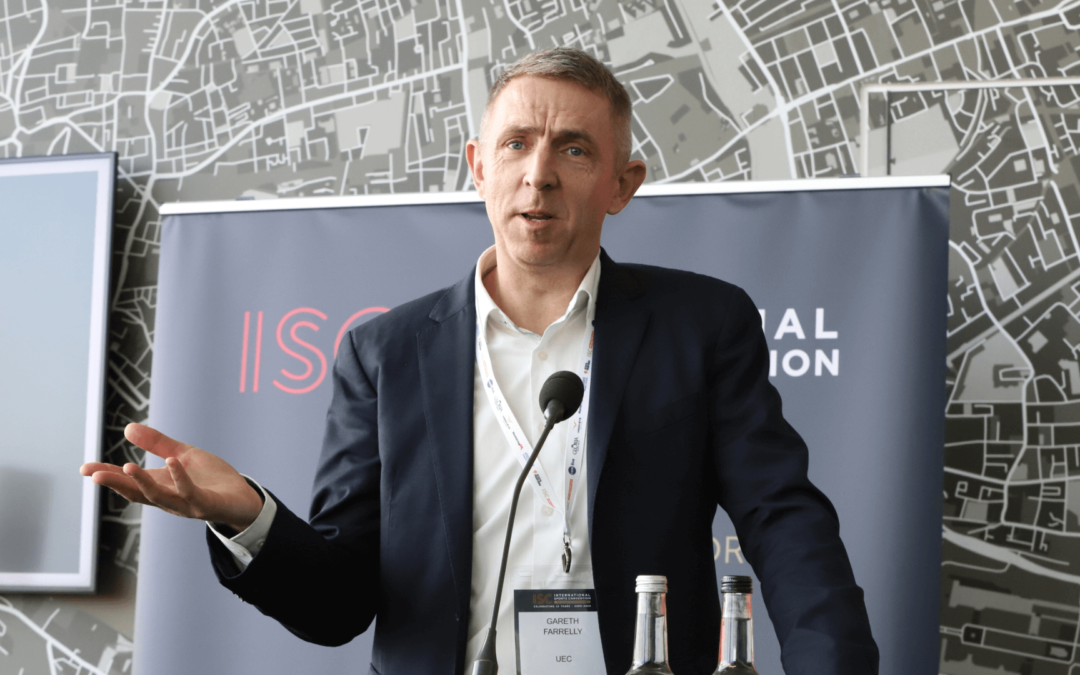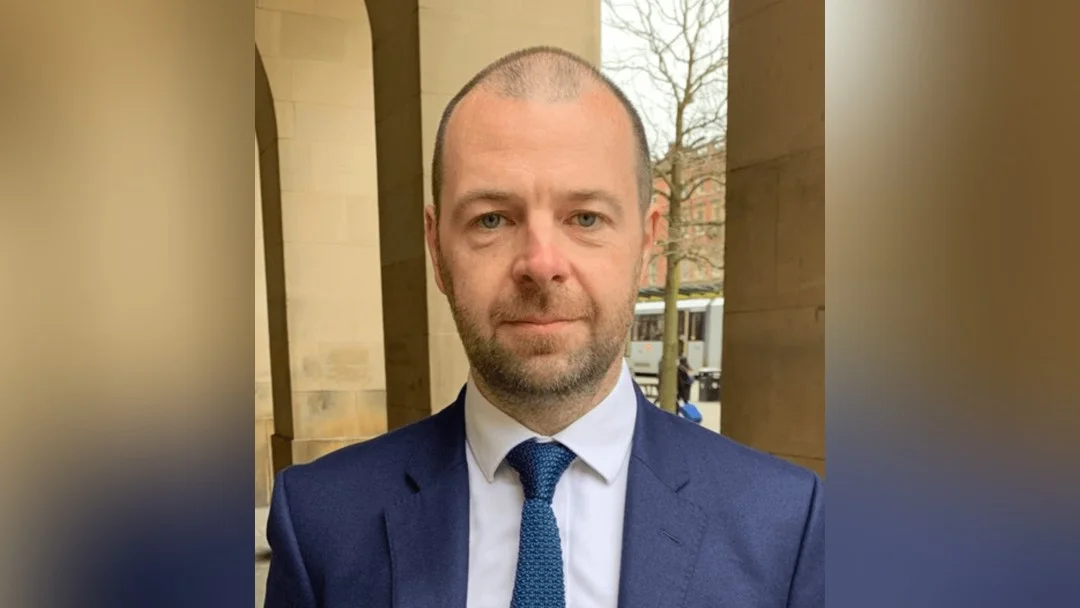
Discovering Talent: Management Agreements
Summertime isn’t only about the weather; it’s also a great…
The post Discovering Talent: Management Agreements appeared first on Glaisyers.

Summertime isn’t only about the weather; it’s also a great…
The post Discovering Talent: Management Agreements appeared first on Glaisyers.

⚽️ Gareth Farrelly, our very own Commercial Litigator and Sports Lawyer, took centre stage at the INTERNATIONAL SPORTS CONVENTION, captivating the audience with his visionary outlook on the future of European football. From navigating the evolving landscape to advocating for inclusive decision-making, Gareth left no stone unturned! ⚽🔍
While the conference may be over, the conversation is far from finished. Gareth’s thought-provoking viewpoints have ignited inspiration, prompting us to wonder: What do we want the game to look like in the next five years? 🤔
Gareth Farrelly started by talking about the speed of change in football and asked the question: “What do we want the game to look like in the next five years?”
On his first visit to the new Tottenham Hotspur stadium, he referenced the announcement of the Government’s plans for an Independent Regulator for football, the failed plan for a European Super League, and the points deductions for Everton and Nottingham Forest in the Premier League.
No one knows what will happen next.
Of football clubs, Farrelly asked: “Who is making the decisions that affect you? Do you have the ability to affect those decisions?”
The elite clubs are represented by the European Club Association, which has a restricted membership, but there had been no body representing non-elite professional clubs.
The Union of European Clubs was created in April 2022, from the realisation that smaller and medium sized clubs lacked a voice in decision making. The aim is to create a fair, sustainable and balanced ecosystem for football.
137 clubs have joined the UEC already. Across Europe, there are still another 1400 who have not.
Farrelly outlined the UEC model for operating, which is open to all professional clubs playing in one of the 55 UEFA national associations. There is no hierarchy-the model is ‘truly open and democratic’.
Farrelly noted how the competitive balance has decreased across Europe on a domestic level, and in the UEFA Champions League. He outlined how UEFA’s decision-making affects the whole football ecosystem, but asked, “Who are the people making those decisions? Power is consolidated at the higher end.”
Original Article available here.

Glaisyers ETL were featured in SolicitorsJournal.
In a significant announcement, Glaisyers ETL, a prominent law firm headquartered in Manchester, unveiled the appointment of Russell Brown as its new managing partner.
Mr. Brown, who previously served as the head of the firm’s acclaimed Legal 500-listed employment practice, will now collaborate closely with David Jones, the executive partner at Glaisyers ETL. Together, they will shoulder the responsibilities of steering the firm’s course, both strategically and operationally.
Having commenced his legal career at Glaisyers and qualifying as a solicitor in 2000, Mr. Brown’s journey with the firm has been enduring. His ascent to partnership in 2006 underscores his commitment and contribution to the organization’s growth and success.
Expressing his thoughts on this new responsibility, Mr. Brown remarked, “Since affiliating with the ETL GLOBAL network five years ago, our firm has fortified its standing in the legal market, particularly in delivering expert counsel to independent and mid-market businesses and their stakeholders. Building upon recent successes, I eagerly anticipate collaborating with David to bring forth numerous upcoming initiatives while guiding our exceptional team to continue delivering outstanding client outcomes.”
Glaisyers ETL witnessed significant milestones in the past year, including the launch of a digital, media, and marketing practice under the leadership of partner Steve Kuncewicz. Additionally, the firm expanded its reach by inaugurating its maiden office in Liverpool, led by corporate partner Adrian Rogers. The relocation from St James’s Square to new premises at 3 Hardman Street in Manchester’s Spinningfields business district further underscored the firm’s growth trajectory.
Reflecting on the firm’s trajectory, David Jones conveyed, “Last year was marked by both expansion and moments of sorrow following the loss of our managing partner, Dave Marlor. Russell demonstrated remarkable leadership during both highs and lows. I am delighted to formalize his role and eagerly anticipate our collaboration in the years to come.”
Russell Brown’s appointment signifies not only a continuation of Glaisyers ETL’s legacy but also a promising step towards its future as a leader in providing legal expertise and exceptional client service. His wealth of experience and dedication positions the firm for continued success and growth in the dynamic legal landscape.

The Government recently announced several expansions to the Youth Mobility visa category, effective from 31 January 2024, pursuant to trade agreements the UK has signed worldwide:
This follows similar preferential conditions for New Zealand nationals introduced earlier this year.
The Youth Mobility category remains a highly valuable working visa for young people wishing to spend two – three years in the UK because it enables the holder to take part in unrestricted employed work. It is extremely useful for employers who wish to employ these nationals due to the relatively low cost and flexibility of the permission.
It is clear that the structure and reciprocity of the scheme works well as a point of negotiation for the UK’s trade agreement talks. Discussion of extending the Youth Mobility scheme to the EU, and to address labour shortages in the UK mean that we are likely to see this category become a heavily used tool in the coming years.
This article is not intended to be used as legal advice. Should any of these updates be relevant to you, please seek expert legal advice from a regulated immigration practitioner or contact the writer, Victoria Welsh, via our immigration services website.

While the (not so) catchy title of this article doesn’t suggest an obvious link to employment law, it’s an update worth knowing for employers with regards to employees’ criminal convictions.
It is generally known that such convictions become spent after certain periods of time, meaning that there is no legal requirement for them to be declared to employers. In fact, a new law has been introduced which means that criminal convictions now become spent after shorter periods of time and therefore reduces the time in which they need to be declared.
The new periods for disclosure apply where the offender was at least age 18 at the time of the conviction. If the offender was younger than 18 years of age then the periods will be shorter. However they will also be extended where any re-offending occurs in the relevant disclosure period.
The table below sets out the type of criminal conviction, the previous time periods during which disclosure was required, and the new periods which have been introduced by section 193 of the Police. Crime, Sentencing and Courts Act 2022.
| Conviction sentence | Previous disclosure period | New disclosure period |
| Custodial – more than 4 years | Never spent | 7 years with some exemptions for never spent convictions, i.e. terrorism offences |
| Custodial – 2.5 – 4 years | 7 years | 4 years |
| Custodial – 1 – 2.5 years | 4 years | 4 years |
| Custodial – 6 months – 1 year | 4 years | 1 year |
| Custodial – up to 6 months | 2 years | 1 year |
Employers should familiarise themselves with the above, in the event that any employees within or joining their employment have been subject to a criminal conviction with a custodial sentence.
If you would like more information, please don’t hesitate to get in touch with our team at [email protected].
You can find more of the latest legal updates here.